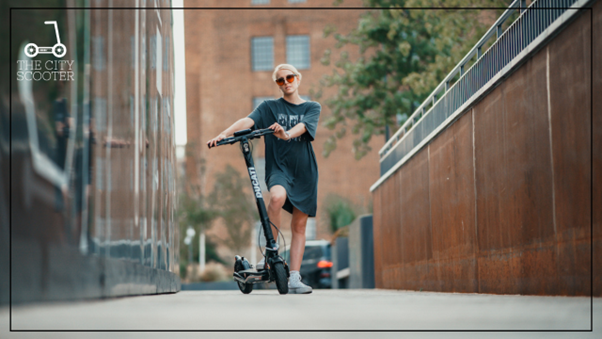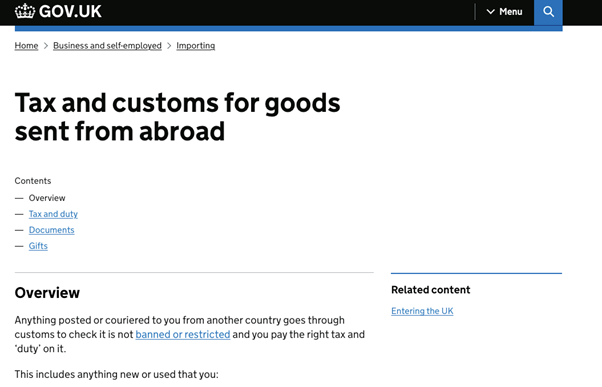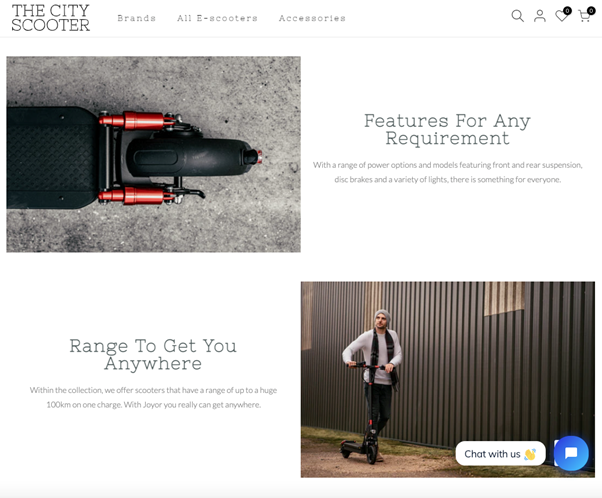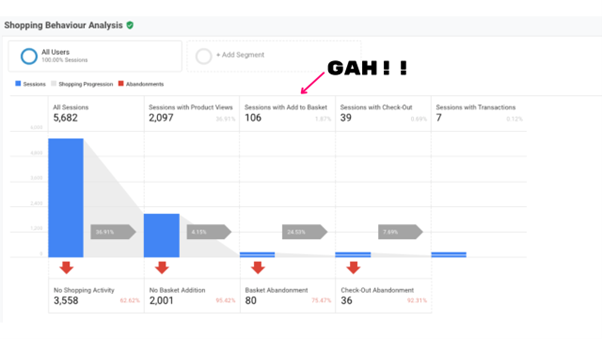Investing in Our Own Brand
One of the Best Things We’ve done As an Agency

Jon Quinton, founder of Overdrive digital, will have his session at inOrbit 2023 on March 17th, at 15:00 (Strategy track in Europa Hall).
Author: Jon Quinton
In 2022, in the wake of iOS14, it was clear that a wider business view on and approach to performance marketing was needed to succeed.
Sounds simple and obvious enough right? However, ensuring everyone on the team is fully immersed in such a large change of mindset, and also having demonstrable evidence is far harder than writing a plan on paper.
To truly achieve the above we had to find a new way of working. Our priority was to not just write a nice presentation and some LinkedIn copy that describes our approach in the typical agency way. We HAD TO ACTUALLY be doing this.
The decision we settled on was to work on our own ecommerce brand, going through the process of conceptualizing a brand, finding product, sourcing suppliers and launching to the wider world. In October we launched The City Scooter.

Since then, we’ve clocked up over 7 million views on TikTok, launched a new scooter brand into the UK, learnt how to deal with UK customs for imports, coordinated multiple creative shoots and of course, started selling and shipping product.
“I’m super excited to be speaking about this process and all the learnings (good and bad!) at inOrbit on the 16th – 17th March!”
Ahead of the conference, I’ve put together a preview of some of the key learnings from the project that I’ll be talking about.
Improved Business Exposure
One of the biggest benefits for us as an agency has been increasing our team’s exposure to other areas of business. One of my biggest gripes with paid media agencies is that there’s a tendency to become blinkered, believing that your campaigns are the one and only source of success.
The reality is that paid media fits into a much larger puzzle; one where every piece has to fit together to drive sales. Providing exposure and opportunities to learn the other pieces of the puzzle is extremely hard in an agency environment. Thanks to this project, our team now understand and work on the process of ordering in stock, optimizing the customer journey right through to seeing the products leave the door.

(Thanks Brexit!)
There has also been a huge amount of opportunity for our team to learn more about the basic economics of ecommerce. From gross margin through to the revenue impact and overheads of returns, these are all relatively simple concepts, but ones that significantly change your approach to running campaigns. Suddenly a broad view on ‘ROAS’ without considering what a business might require financially just doesn’t cut it.
That’s awesome context that makes us all better at doing our job.
Wearing Our Clients Shoes
To do a great job for your clients, first you must understand their position. I’ve always believed that the best agency folk are those that can put themselves in the shoes of their clients, truly understanding what they need. As part of our day to day work, we often need to ask for supporting material or further information to help our campaigns perform better. Having some first hand experience of what you are asking for is hugely valuable.
With The City Scooter, our team have coordinated everything. From finding shipping partners, through to coordinating photoshoots for our campaign creative. It’s by no means an exhaustive list of ecommerce management, but it does provide useful experience when we’re working with a client on those areas.
Putting Our Money Where Our Mouth Is
This is more a point of principle, but I have a personal ‘thing’ for agencies backing up what they say.
In my view, if we’re saying we’re great at performance marketing, we should be taking steps to back that up with our own cash. Even when / if done on a small scale, running ads with your own cash gives you perspective like no other. A subtle yet huge difference. I believe that if we are asking a client to trust us with their advertising spend, we should be willing to put our own cash into learning, testing and driving our own performance.
Doing What it Takes to Drive Sales
One of the early slight errors (of many) we made was not positioning a new brand to the UK correctly, the result of which being absolutely no sales for quite some time.
Therefore, we had a challenge on our hands – how do we take a product range from having zero interest, through to creating demand and shifting the stock?

(landing page development)
Stepping back and looking at the product range critically; our chosen actions were to re-assess pricing against the competition, shoot a new set of creative, build a new custom landing page template to make their USPs shine, and run a new set of ads showcasing the strongest features vs. price. The products started selling, with one model selling out within a week. Having had no sales prior, this was progress for sure. Note that only one part of our action plan was related to running paid media. Whilst obviously super important to get right, it was the entire chain of action that was needed to move the dial.
Seeing the challenges first hand
Turns out, starting an ecommerce brand from scratch is hard. As a team we are completely transparent and everyone is fully aware of all project details – from what promotions we are planning to run through to the remaining bank balance.
This means that everyone sees the tough stuff too. From products being returned (and the expense that goes with it), to a lack of people adding products to their cart. Whilst no one wants to fill their day with challenges, it’s a set of great learning experiences for sure.

(month 1 add to cart issues)
The main point here is that the ‘ask’ you’re sending over to your client may seem really easy; but perhaps it’s not as simple as it sounds on the surface. Again, going through the steps ourselves and seeing all the potential bumps in the road will only make us better at our jobs.
Next steps
We’re currently six months in, so still very much assessing the future. The experience so far has been full of incredible learnings, a wealth of training opportunities and it’s made a huge difference to our approach when working on client accounts. That in itself is well worth it.
We have definitely picked a product with unique challenges, and with expected changes to regulations coming at the end of 2023, we don’t predict a huge growth in sales until that stage. In the short term, we’ll keep learning and refining the approach. There’s tons of exciting plans in the pipeline, including exploring Amazon and looking at potentially adding in some new brands. We’re very much looking forward to what 2023 brings!
I’m also really looking forward to talking through our experiment in more detail in March. See you there!


